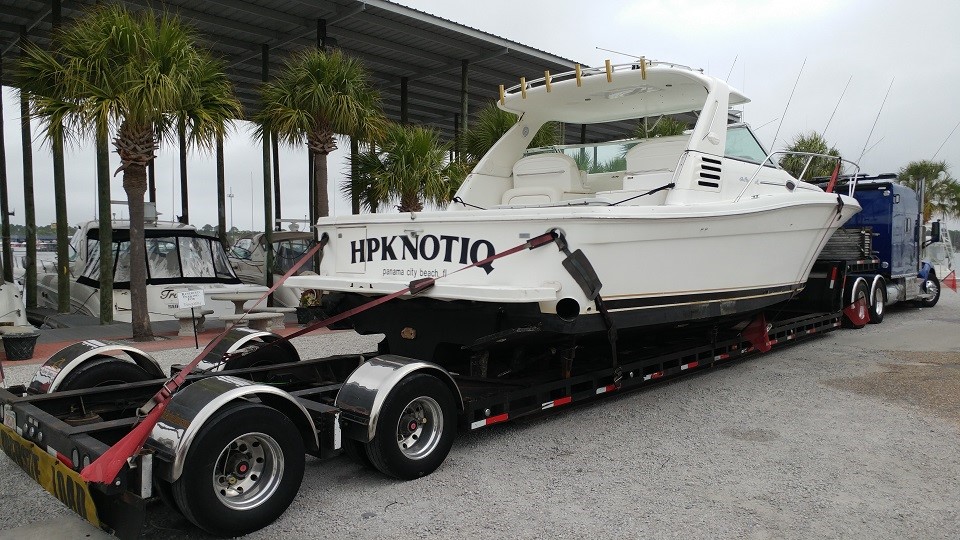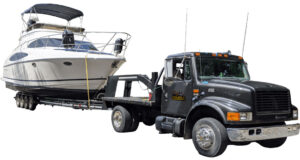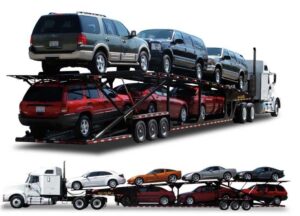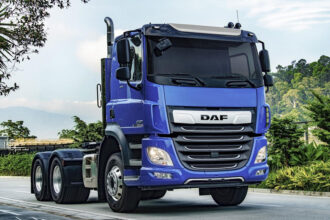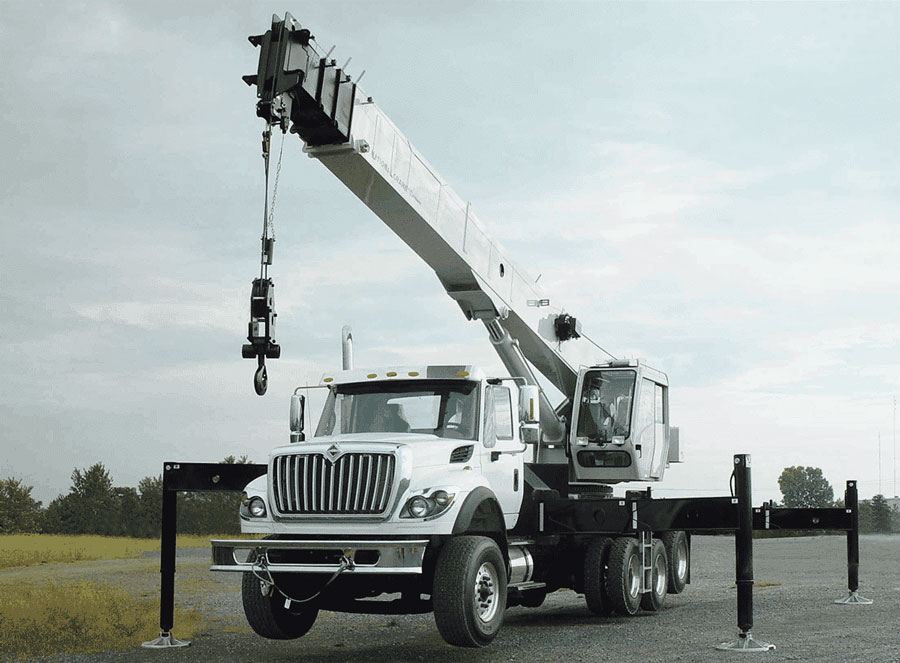Table of Contents
Have you ever wondered how much money boat haulers make? Boat haulers are the people who transport boats of various sizes and shapes from one place to another, often across long distances and challenging terrains. They are essential for the marine industry, as they deliver boats to customers, dealers, marinas, boat shows, and repair shops. But how much do they earn for this demanding and risky job? — Learning How to Start a Boat Hauler Business is a great first step to fully understand how much boat haulers make
This article explores the income of boat haulers in different categories and regions, and reveals some of the secrets behind this fascinating profession, as well as the factors that influence their income.
How Much Boat Haulers Make Depend on:
- Experience
- Type and Size of Boat
- Distance
- Seasonality
- Location
- Equipment Cost and Maintenance
- Insurance and Permits
Ready? Let’s dive in
1. Experience
Boat haulers income depends on experience
One of the most significant factors impacting a boat hauler’s income is their level of experience. Those with a track record of successful deliveries and a reputation for reliability often command higher rates for their services. Understanding how to consistently secure these opportunities is key; learn more in our guide on Boat Hauler Business How to Find Loads.
See some instances of boat haulers income based on experiences:
- Jeffrey Butts, started his boat hauling business in 2010 with a single truck and trailer. He learned the ropes of the industry by working with experienced boat haulers and brokers, and gradually built his reputation and customer base. He now owns a fleet of six trucks and trailers, and earns over $300,000 per year from boat hauling. He attributes his success to his experience, skills, and customer service.
- John Walker, transporting boats for over 40 years deals with thousands of boats of all shapes and sizes across the country, and has earned the trust and loyalty of many customers and brokers. He charges between $2.50 and $4.00 per mile for his service, depending on the type of boat and the route. He says that his experience has helped him find the best routes, avoid delays and fines, negotiate better rates, and reduce costs and risks.
- One of the most successful boat haulers in Canada, Dave MacKenzie, has been transporting boats for over 30 years. He transports hundreds of boats of all kinds across Canada and the U.S., and has a reputation for being reliable, professional, and efficient. He charges between C$1.50 and C$3.00 per kilometer for his service, depending on the type of boat and the distance. He says that his experience has helped him develop specialized skills, acquire quality equipment, build a loyal customer base, and deal with various challenges.
2. Type and Size of Boat
The earnings potential of boat haulers is a function of type and size of boat.
Boat haulers deal with a wide range of vessels, from small sailboats to massive yachts. Typically, larger or more valuable boats result in higher pay, as they often require specialized handling and equipment.
The size, shape, weight, and value of a boat can impact boat haulers’ income, as different boats may require varying equipment, permits, insurance, and transport skills. Understanding the right equipment for the job is crucial; learn more in our guide on How to Buy a Boat Hauler For Business. For instance, transporting a sailboat can cost between $1.50 and $3.50 per mile, whereas a powerboat’s transport can range from $1.30 to $3.10 per mile. Know that these costs may fluctuate depending on the boat’s dimensions and the shipment’s origin and destination.
>>>MORE: How to Start a Boat Hauler Business
3. Distance
The distance a boat hauler needs to transport a vessel plays a crucial role in determining their earnings. Longer hauls not only consume more time but also entail greater expenses in terms of fuel and maintenance.
The travelling distance also plays a significant role in boat transport costs. Longer distances may lead to higher charges for services, but they can also result in increased expenses such as fuel, maintenance, tolls, and lodging. On average, boat transport costs in the U.S. vary by distance, with rates being $1.33 per mile for 0-100 miles, $0.99 per mile for 100-300 miles, $0.75 per mile for 300-1000 miles, and $0.65 per mile for distances over 1000 miles. However, these rates can be influenced by boat type, seasonality, route, and competition levels.
4. Seasonality
The amount boat transporters earn depends on seasonality.
Boat hauling can be a seasonal business in some regions, with more demand during the spring and summer months when boat owners are more likely to move their vessels. Boat haulers may need to plan for fluctuations in income throughout the year.
5. Location
Boat transporters’ earnings are based on location
The region or country in which a boat hauler operates can significantly affect their earnings. Local market conditions, competition, and the demand for boat hauling services all play a role in determining rates.
United States: As of May 7, 2023, the average annual pay for boat haulers in the United States is approximately $58,495. However, this average income can vary based on the specific state, city, or region where a boat hauler operates. Here is a list of the top 10 highest-paying cities for boat haulers in the U.S., with salaries as follows:
- San Mateo, CA: $70,699
- Daly City, CA: $68,383
- Green River, WY: $69,602
- Santa Monica, CA: $66,714
- Berkeley, CA: $66,290
- Richmond, CA: $65,823
- Stamford, CT: $65,698
- Bellevue, WA: $65,497
- Seattle, WA: $65,455
- San Francisco, CA: $65,412
Canada: The average annual salary for boat haulers in Canada is approximately $50,000 as of April 23, 2023. Nevertheless, this average can fluctuate based on the province, city, or region in which a boat hauler operates. For instance, see the salary ranges for boat hauler jobs in various Canadian locations, such as:
- Port Carling, ON: $25 – C$30 per hour
- Bracebridge, ON: $20 – C$25 per hour
- Orillia, ON: C$18 – $22 per hour
- Gravenhurst, ON: $18 – C$20 per hour
Australia: In Australia, the average annual salary for boat haulers is approximately $60,000 as of April 23, 2023. However, this average income can differ depending on the state, city, or region of operation. For example, here is a list of some hourly salary rates for boat hauler jobs in Australia:
- Boat Transport Driver: $28.75 per hour in Sydney, NSW
- Boat Transport Driver: $27.50 per hour in Brisbane, QLD
- Boat Transport Driver: $26.50 per hour in Melbourne, VIC
- Boat Transport Driver: $25.00 per hour in Perth, WA
>>>GET SMARTER: How to Buy a Boat Hauler For Business
6. Equipment Cost and Maintenance
Pay for boat haulers is based on equipment cost and maintenance.
Boat haulers consider the costs associated with maintaining and operating their hauling equipment, such as trucks and trailers. These expenses can impact their net income.
The type and quality of equipment used by boat haulers can have a significant impact on their income and expenses. For instance, uShip notes that boat haulers may require various pieces of equipment, including:
- A truck or van with sufficient towing capacity.
- A trailer that matches the size and shape of the boat.
- Straps, chains, pads, lights, and other accessories to secure and protect the boat during transport.
- A hydraulic lift or crane for loading and unloading the boat.
- GPS or maps for navigation along the route.
- A CB radio or cell phone for communication with customers and authorities, among other tools.
Note that the cost associated with acquiring, maintaining, insuring, and licensing this equipment can vary significantly. Factors influencing these costs include the quality of the equipment, its availability, and adherence to regulations.
The cost of maintenance can vary depending on the age, condition, and quality of the truck and trailer, and the frequency and type of service required. The average maintenance cost for boat haulers in the U.S. is $0.15 per mile.
7. Insurance and Permits
Boat haulers often require specialized insurance and permits to operate legally. These additional costs should be factored into their pricing structure.
The cost of insurance can vary depending on the coverage, deductible, and premium of the policy, and the value and risk of the boat. The average insurance cost for boat haulers in the U.S. is $0.10 per mile.
The cost of permits can vary depending on the state, county, or city where the boat hauler operates, and the size and weight of the boat. Some of the permits that boat haulers may need are oversize load permit, overweight load permit, temporary fuel permit, temporary registration permit, etc. The cost of these permits can range from $10 to $500 each.
Recap
The income of boat haulers depends on several factors, such as experience, the type of boat, the distance, the seasonality, location, equipment maintenance and operational costs, insurance and permits. The average income of boat haulers ranges from $20 to $56 per hour, or from $40K to $56K per year. However, these numbers may not reflect the actual expenses and profits of boat haulers, as they have to pay for fuel, maintenance, insurance, permits, taxes, and other costs. For a detailed guide see Boat Hauler Business Accessories you Need to Succeed.


